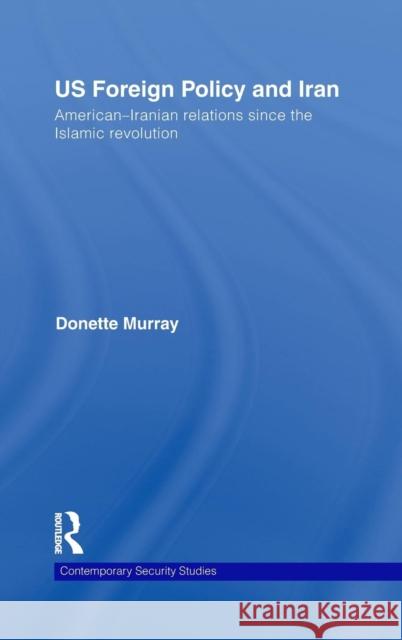Us Foreign Policy and Iran: American-Iranian Relations Since the Islamic Revolution » książka
Us Foreign Policy and Iran: American-Iranian Relations Since the Islamic Revolution
ISBN-13: 9780415394062 / Angielski / Twarda / 2009 / 260 str.
Us Foreign Policy and Iran: American-Iranian Relations Since the Islamic Revolution
ISBN-13: 9780415394062 / Angielski / Twarda / 2009 / 260 str.
(netto: 699,68 VAT: 5%)
Najniższa cena z 30 dni: 705,23
ok. 22 dni roboczych.
Darmowa dostawa!
US Foreign Policy and Iran is a study of US foreign policy decision-making in relation to Iran and its implications for Middle Eastern relations. It offers a new assessment of US-Iranian relations by exploring the rationale, effectiveness and consequences of American policy towards Iran from the aftermath of the 1979 Iranian Revolution to the present day. As a key country in a turbulent region and the recipient of some of the most inconsistent treatment meted out during or after the Cold War, Iran has been both one of America's closest allies and an 'axis of evil' or 'rogue' state, targeted by covert action and contained by sanctions, diplomatic isolation and the threat of overt action. Moreover, since the attacks of 11 September 2001, Iran has played a significant role in the war on terror while also incurring American wrath for its links to international terror and its alleged pursuit of a nuclear weapons programme. US Foreign Policy and Iran will be of interest to students of US foreign policy, Iran, Middle Eastern Politics and international security in general Donette Murray is a Senior Lecturer in the Department of Defence and International Affairs at the Royal Military Academy Sandhurst. She was awarded a PhD in International History by the University of Ulster in 1997.
This book is a study of US foreign policy decision-making vis-à-vis Iran and the implications for Middle Eastern relations in the latter part of the twentieth century, and into the twenty-first century.
US Foreign Policy and Iran will offer a new assessment of US-Iranian relations by exploring the rationale, effectiveness and consequences of American foreign policy towards Iran from the aftermath of the 1979 Iranian Revolution to the present day. While the chronological structure of the book will tell the reader what happened, the main focus of the study will be an analysis of why American foreign policy evolved in such a way that its successes have too often been eclipsed by a litany of failures. Finally, the author draws on this assessment of past and present to offer some insights into the likely course of US-Iranian relations in the years to come.











